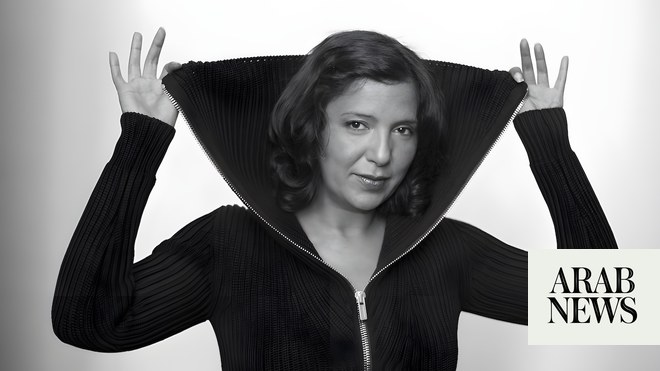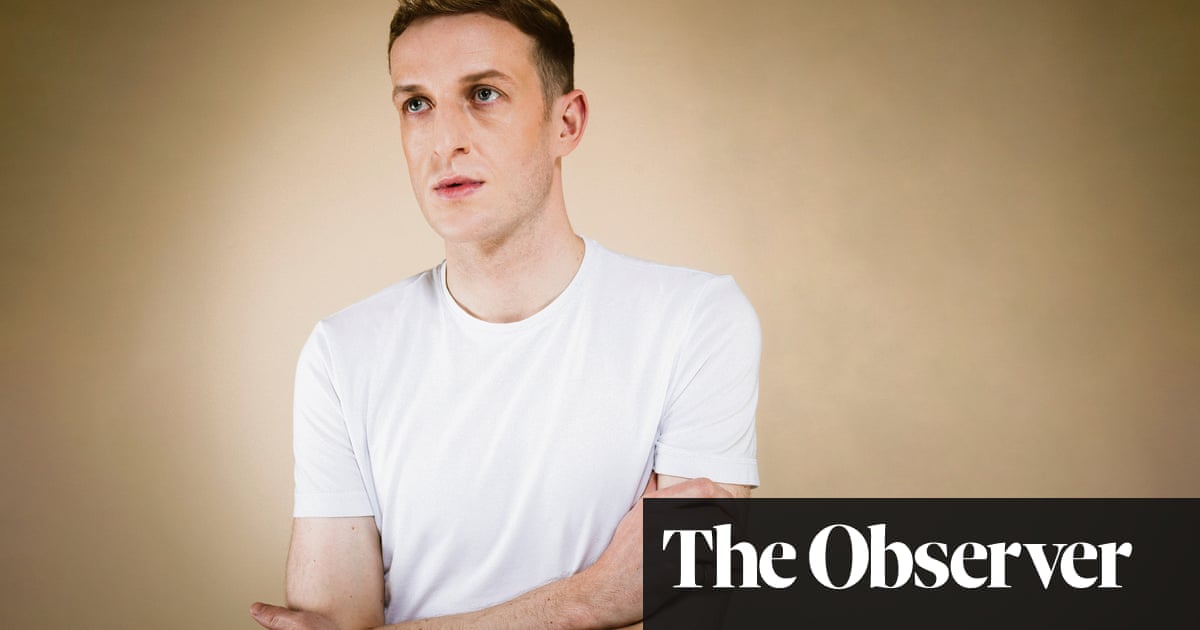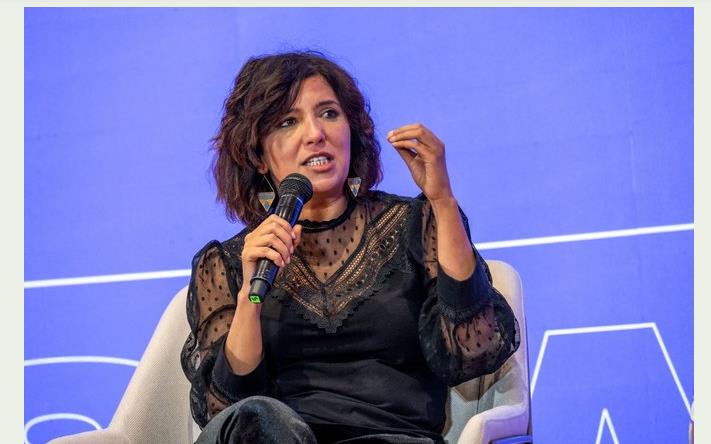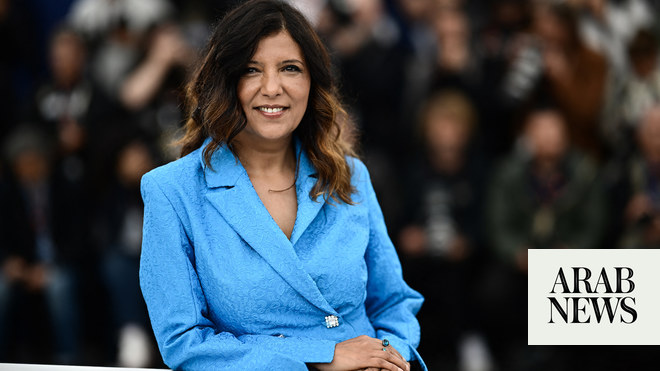
DUBAI: In 2016, the world first felt the righteous fury of a Tunisian mother named Olfa Hamrouni. Her two eldest daughters — Rahma and Ghofrane — had run away from home to join Daesh in Libya. Rather than let herself be consumed by her grief, she went public with her story, condemning authorities who did nothing to help her and the system that allowed it to happen. It was a cry for justice, a cry heard clearly by Oscar-nominated filmmaker Kaouther Ben Hania. Together, Hamrouni and Ben Hania have made “Four Daughters,” a docu-fiction hybrid unike any film ever made. In it, Hamrouni appears as herself, and, in dramatizations of past events, seasoned Tunisian actress Hend Sabry plays her. At other times the two interact, passionately discussing the events at hand. Hamouri’s younger daughters appear too, as well as actresses Ichraq Matar and Nour Karoui playing the two lost elder daughters, who first act out what happened, then bond — as themselves — in grief. It’s as emotionally complex as it sounds, and as thematically complex as you can imagine“I was drawn to this story immediately, but I was so lost in the beginning,” Ben Hania admits to Arab News, speaking to us on the sidelines of the 67th BFI London Film Festival earlier this month, at which the film screened. “There’s a lot of layers — it’s about trauma, tragedy and even the very act of opening your own wounds back up in order to heal them.
“But in the end, I found a way to tell it — mixing fiction, documentary making, and even a meta-documentary about the shooting of the movie itself. That all gave me the possibility to tell different levels of the story. It’s a surreal story on its own, you have to open yourself up to telling a story like that the way it demands to be told, organically,” she continues.
Ben Hania, at 46, is approaching two decades as a filmmaker, helming her acclaimed first short “Brèche” in 2004, with “Four Daughters” marking her sixth feature and 12th film overall. 2020’s “The Man Who Sold His Skin,” about a Syrian refugee who is turned into an art piece, brought her and her country’s cinema to new heights, becoming the first Tunisian film to be nominated for Best International Feature Film at the Academy Awards. “Four Daughters” is on a similar path, submitted last month for the 2024 Oscars ceremony after becoming the first Tunisian film to earn a nomination for the Palme d’Or since 1970 at the Cannes Film Festival.
There are two things that link each of her works — their exposure of injustice, and their emotional and thematic richness. Both are a reflection of her character, because as affected as she is by the inequity of the world, she is careful and considered in how she approaches it in either fiction or documentary.
“Injustice is a theme crossing all of my movies that I am very sensitive to. But while you want to tell that story, you also have to know why you want to tell that story, and what the story means, and what the story can convey in terms of emotion first, and then, in terms of ideas,” Ben Hania says. “These are very important questions that any filmmaker should ask him or herself before doing a movie.”
While she remains cautious, it is no coincidence that, two decades on, her work continues to grow more daring.
“Yes, I"m the same person, but I’m less scared,” she says, pausing for thought. “I mean, I"m still scared when it"s typing. I’m still scared of doing something bad. I"ve been scared of not telling things as they should be told, scared of the medium. Cinema is wonderful in so many ways, but it"s always scary to say, ‘I have something to say. I have a story I want to share.’ But experience has given me confidence.” Taking on a task as demanding as “Four Daughters” required a lot of confidence, not just because of its scope, but because so much of the journey of making it was led by questions that may never have answers. The reason why the daughters were lost to a radicalization movement can never be fully understood without their presence (if then). As a result, Ben Hania made the film a safe space to try to work through the huge void they left behind, without the burden of form or preconceived solutions.
“It always remained a work in progress. I would plan things, but always leave room for surprise. These are real people telling their stories with their own words. Even the actors are using their words. So you have to be able to adapt to their truth — to get lost before finding your way, while preparing, while shooting, and then while editing, until you find the final movie you want to make.”
Making the film, understandably, was overwhelming for all involved, including Ben Hania herself. To get through it, they leaned on each other, and, to Ben Hania’s surprise, it was Hamrouni’s younger daughters, Eya and Tayssir Chikhaoui, who were the ones that got them through it, bringing a strength that powered all of the women on set. “Their courage surprised me, honestly. I knew they were courageous, but I couldn’t believe at times that not only were they telling this story, they were reassuring and comforting us, which is completely crazy,” says Ben Hania. “I also couldn’t believe the sisterhood between the two actresses playing the elder sisters and the two real young daughters — they became a composite family through the tools of cinema. By the end, it was like they were real sisters.”
What gets Ben Hania emotional now, as the film tours the world’s top festivals ahead of its theatrical debut, is not just the many truths they mined from their lives, faith and society — truths that linger in the mind long after the film is over for both author and viewer — rather, it is the effect the film has had on the real-life relationships of Hamrouni’s family, which had been torn apart by the events the film depicts.
“When we started shooting, they weren’t really speaking with one another. They were fighting all the time. And then the movie gave them this possibility to tell each other things, to understand each other,” Ben Hania says. “I put so much thought into how I wanted to tell this story but, still, I underestimated the therapeutic aspect of what we were making. That was so great. That was such a beautiful surprise.”












